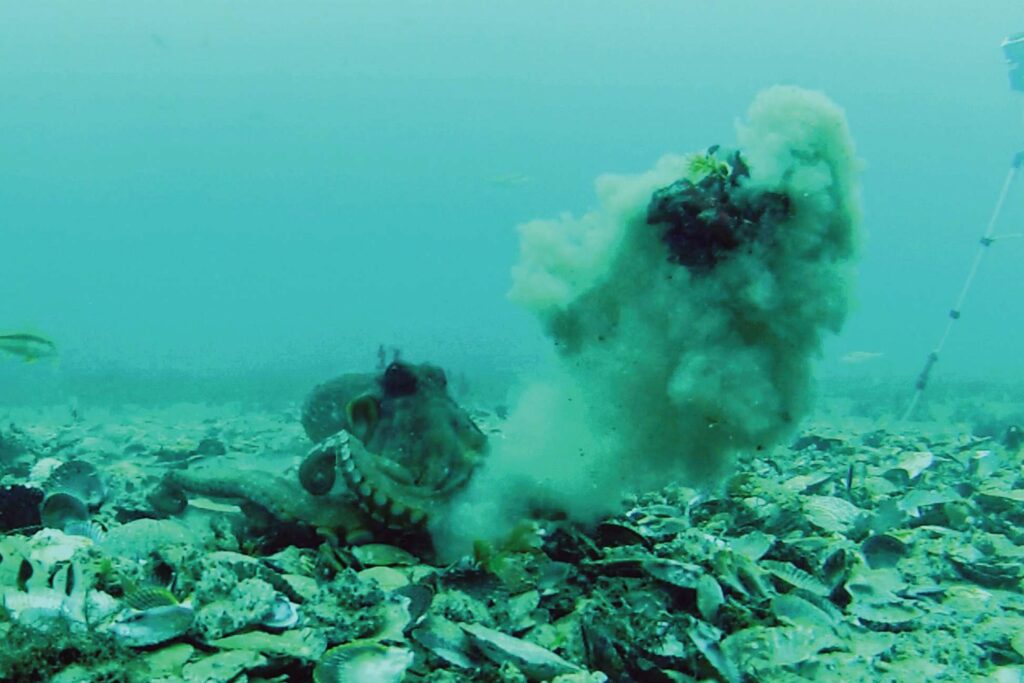Octopuses need their personal space, and they have a unique way of making sure they get it


NatureBang
What can an octopus teach us?
SOME ANIMALS ARE MADE FOR COMMUNAL living, but octopuses aren’t among them. Australia’s gloomy octopuses are solitary animals by inclination. And yet in Jervis Bay, drawn by a plentiful supply of scallops, they pack themselves together like sardines. And new research shows they have come up with a novel way of enforcing personal space.

“The sand at Jervis Bay is too fine and silty to support a stable den,” says Peter Godfrey-Smith, a professor who led the research from the University of Sydney in Australia. “But the empty scallop shells provide a much better building material. The more octopuses that move in, the more shells there are for building dens.”
But den construction is not all they do with the shells. They also use them as ammunition against neighbours. In the journal PLOS ONE, Godfrey-Smith and his colleagues describe how the octopuses launch the shells and other debris in the direction of their neighbours by holding them in front of their siphon and propelling them with a jet of exhaled water.
“At most it’s about 50 per cent accurate,” he says. The big question is whether they are actively targeting neighbours, or whether direct hits are an unintentional consequence of some other function, such as housekeeping.
“There are quite a few cases where a male has been bugging a female for mating, and the female throws stuff at him. There’s another between two females that were tussling and poking at each other and the throws were mixed in with that sort of getout-of-my-face behaviour.”